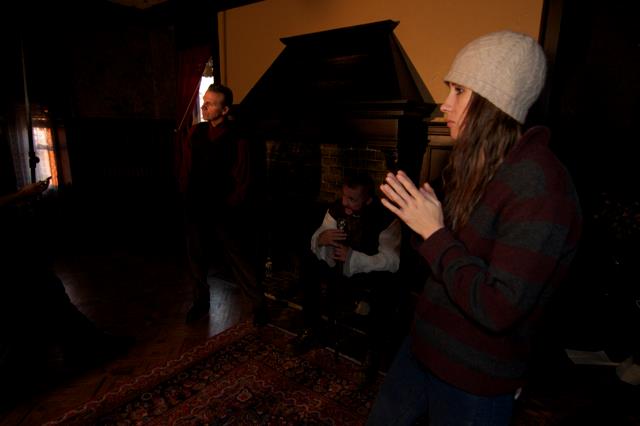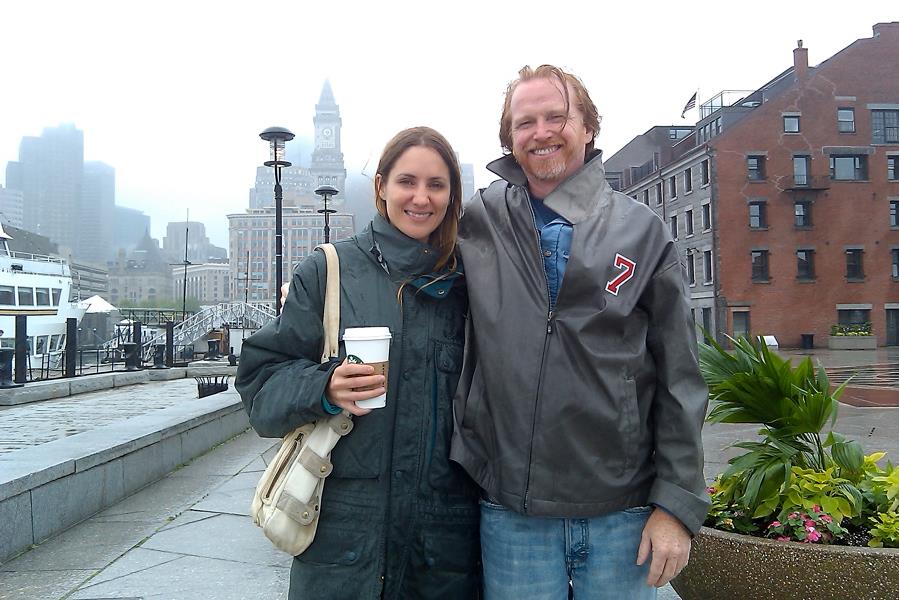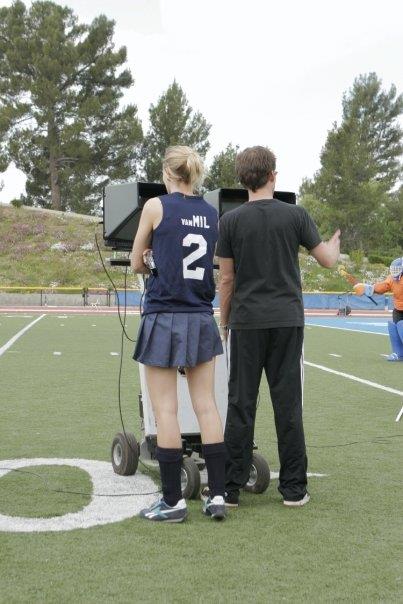Exclusive Q&A with Female Producer, Filmmaker & Actress
Posted on Wednesday, November 21, 2018

Jessica Sonneborn is an American actress, writer, director and stunt double, who you may recognize from her starring roles in Bloody Bloody Bible Camp and Dorothy and the Witches of Oz. But aside from being a highly sought after horror actress, she tapped into her interest in filmmaking and has landed her additional titles including Producer and Director. She talked exclusively about her experience in "the biz."
PH: What got you interested in filmmaking? How did you break into the industry?
Jessica Sonneborn: I’ve been a storyteller for as long as I can remember, writing books out by hand and creating universes with my toys. My dad is a film historian and enthusiast, so I grew up watching old classics on a 16 millimeter. I have always been fascinated by the power of a really well-made film.
I started acting outside of Boston, while I was getting my Masters in Education. I wasn’t exactly sure what I wanted to do with my life, but my curiosity for movies and acting became a really fun hobby. Most of the first productions I worked on were horror movies because horror movies are the easiest low budget genre to sell. So my introduction into filmmaking started with horror. After two years I decided I wanted my hobby to be a full-time venture and moved to Los Angeles.
PH: Can you talk a bit about your experience with your first few projects. What were some of the things you learned to take further into your career?
Jessica Sonneborn: I started as an actress, so I learned a lot about filmmaking by listening and watching what the people I worked with were doing. There is a big difference between a well thought out production and one that hasn’t been thoroughly planned. I knew as a beginning filmmaker that I wanted to do as much work as I could in preproduction, to help make the shoot go smoothly.
The first projects I produced were a short film called Time and a thriller feature called Lure. I look back on those projects and see that I’ve learned so much from working on them. One great lesson I’ve learned: you’ll always be thrown curve balls on set, so be prepared for them. From people running late or not showing, to losing locations at the last minute, you really need to be ready to think on your feet and be ready for plan B.
You never know if you might suddenly have to shoot a scene not on the schedule that day or re-write a scene to make it fit what you have available to you. The better prepared you are, the easier it will be to put out fires on set.

PH: You also have experience acting - how did you make the transition to directing and producing?
Jessica Sonneborn: I transitioned from acting to filmmaking because I wanted to create content that moved me. As I mentioned, I’ve always been a storyteller. I started writing stories I thought would be fun to tell and hit the pavement to figure out how to get them produced. Sometimes you get no budget, sometimes a modest budget...if you have the passion, you’ll make it happen.
PH: When you start to lack inspiration or you're trying to come up with fresh ideas, how do you continue to stay motivated and recharge your creativity?
Jessica Sonneborn: I’m so grateful that I have other interests. I restore, refinish and repaint furniture. So whenever I feel stuck creatively, I have my artistic outlet in my brushes. I think it’s so important to have other creative outlets outside of “the biz”.
PH: Can you talk a bit about a few projects that have stood out to you?
Jessica Sonneborn: My directorial debut The Haunting of Alice D. stands out for several reasons. We made the movie on a micro-budget and I think our team of actors and crew put in such amazing performances. While there are things I would change or have done differently if I were shooting it now, I’m still very proud of “Alice D”. It was one of the smoothest and most fun sets I’ve ever worked on, and I cannot wait to follow up with my next directing venture to show how much I’ve grown.
The House Across the Street is another project that stands out. I played the lead role and got to work with some amazing actors: Ethan Embry, Courtney Gains, Eric Roberts and the late Alex Rocco. HATS was one of the most challenging projects I’ve ever worked on.
Arthur Luhn, the writer/ director was completely deaf and working with him, with our language barrier, was a very unique situation. Arthur knew exactly what he wanted in each moment and frame of the movie, and we spent a lot of time trying to figure out how to effectively communicate. It was intense, challenging and also completely invigorating.

PH: In your opinion, what mistake do most filmmakers make, regardless of how experienced they are?
Jessica Sonneborn: One of the biggest mistakes, in my opinion, is filmmakers that don’t trust their collaborators and become dictators on set. I understand the fear of losing your vision, but that’s why it is so important to work with cast and crew that you trust.
Sometimes it is worth sticking to your guns and making sure a line, or a moment is exactly what you’d envisioned, but I've seen filmmakers that are so fearful and mistrustful of their cast and crew that they want everything to be exactly their way. In my opinion filmmaking is a collaboration. I say, put together an amazing team and let them do their job, under your guidance.
PH: Why do you think there are so few women in filmmaking? And how do you see that evolving?
Jessica Sonneborn: I feel like I’m surrounded by female filmmakers! But yes, there are more male filmmakers. I’m not sure. It could be that there are fewer women because an aggressive man is seen as assertive, while an aggressive woman is seen as a bitch. The different sexes are valued for different attributes and held up to different standards, which is something that I hope will change.

PH: For you, how do you know when a story is finished? Whether it be when you're directing OR acting?
Jessica Sonneborn: I’m not sure they’re ever completely finished. As a dreamer, I feel there is always hope for a sequel, a chance for the story to go on.
PH: Where do you see the future of film heading and what role do you want to play?
Jessica Sonneborn: I think the industry is ever changing with styles, genres, effects, trends, etc., but the one thing that never changes is the effectiveness of a great story. My goal is to tell inspiring stories, whether through acting or filmmaking. Creating and finding good content that makes people think and wonder.
PH: Is there anything else you'd like to add?
Jessica Sonneborn: I’m just finishing co-producing an anthology called Holidays of Horror. I worked on several of the segments as a writer, director, producer and actress, and it was blast getting to work on several sub-genres of horror.
I’m also writing a sci-fi pilot that I’ll be shopping next Spring. It’s taking my career in a totally different direction. It’s mysterious, with twists and turns... can’t wait to share it.
You can learn more about Jessica on her website at jessicasonneborn.net.
Recent Blog Posts
2024 NAB Show Wrap Up: New Technologies and Products Shine Bright
Posted on 4/22/2024
ProductionHUB Announces NAB Show 2024 Awards of Excellence Winners
Posted on 4/17/2024
NABHUB: Your Gateway to NAB Show Excitement
Posted on 4/5/2024
Is Cloud Storage in Your Future Production Plans?
Posted on 3/29/2024
Here's Why Your Business Should Be Using Promotional Videos
Posted on 3/19/2024






